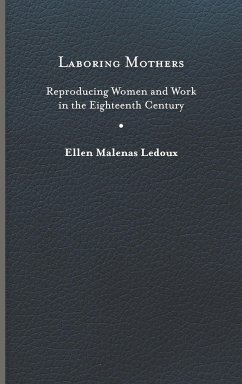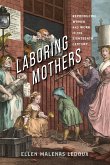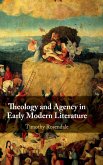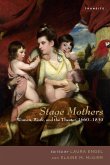Motherhood inherently involves labor. The seemingly perennial notion that paid work outside the home and motherhood are incompatible, however, grows out of specific cultural conditions established in Britain and her colonies during the long eighteenth century. With Laboring Mothers, Ellen Malenas Ledoux synthesizes and expands on two feminist dialogues to deliver an innovative transatlantic cultural history of working motherhood. Addressing both actual historical women and fabricated representations of a type, Ledoux demonstrates how contingent ideas about the public sphere and maternity functioned together to create systems of power and privilege among working mothers. Popular culture has long thrown doubt on the idea that women can be both productive and reproductive at the same time. Although the critical task of raising and providing for a family should, in theory, foster solidarity, this has not historically proven the case. Laboring Mothers demonstrates how contemporary associations surrounding economic status, race, and working motherhood have their roots in an antiquated and rigid system of inequality among women that dates back to the Enlightenment.
Hinweis: Dieser Artikel kann nur an eine deutsche Lieferadresse ausgeliefert werden.
Hinweis: Dieser Artikel kann nur an eine deutsche Lieferadresse ausgeliefert werden.








